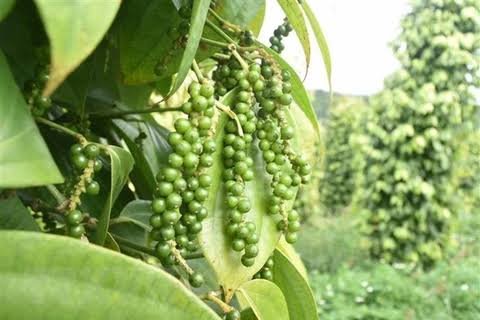Hanoi, August 16, 2024, The Europe Today: The Vietnam Pepper and Spice Association (VPSA) has forecasted that the country’s pepper exports will exceed $1 billion this year, marking a significant return of pepper to the billion-dollar commodity group.
As of July 30, Vietnam exported 164,357 tonnes of various types of pepper, with black pepper making up 145,330 tonnes and white pepper accounting for 19,027 tonnes. The total export turnover reached $764.2 million, positioning the industry on a strong trajectory to surpass the billion-dollar mark by the end of the year.
Despite a 2.2% decline in export volume compared to the same period in 2023, export turnover saw a remarkable increase of 40.8%. The average export price of black pepper for the first seven months was $4,568 per tonne, while white pepper reached $6,195 per tonne—an increase of 32.7% and 25% respectively, year-on-year.
The United States remains the largest market for Vietnamese pepper, followed by Germany, the United Arab Emirates, and India, with significant increases in exports to these countries. Conversely, exports to China have decreased by 84.6% compared to the previous year.
The rise in Vietnam’s pepper exports is attributed to a global scarcity of pepper supply. Brazil, the world’s second-largest producer and exporter of black pepper after Vietnam, has experienced continuous crop failures, which are expected to push global pepper prices higher in the final months of 2024. This trend is further exacerbated by the impact of El Nino, which has constrained global pepper supply, and could lead to insufficient production to meet worldwide demand over the next three to five years.
Domestic markets have also seen significant price hikes. In July, domestic pepper prices reached VNĐ150,000 per kilogram, up 82.9% from January and 120.6% from the same period in 2023. On average, black pepper prices have risen by 66.5% in the first seven months of 2024 compared to the previous year.
Hoàng Phước Bính, Vice Chairman of the Chư Sê Pepper Association in Gia Lai Province, noted that the pepper market is entering a new price increase cycle expected to last around ten years. However, pepper cultivation in Vietnam is facing challenges, particularly from competition with durian and coffee crops, which have become more attractive due to their higher prices.
The VPSA’s survey across key pepper-growing regions, including the Central Highlands and Southeast provinces, revealed that the area dedicated to pepper cultivation has decreased by up to 50% compared to its peak, due to both climatic challenges and shifts in crop preferences among farmers.
As Vietnam’s pepper industry navigates these challenges, the country remains a critical player in the global pepper market, with its exports continuing to influence global supply and pricing dynamics.


